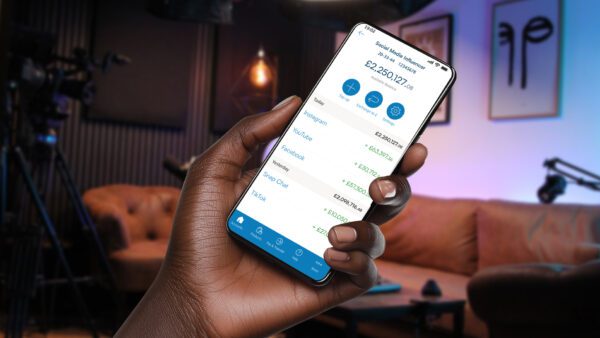Latest Posts

From Likes to Legacy: Succession Planning for Influencers
Digital estate planning is an essential aspect of modern estate planning, especially as we spend more time online and accumulate valuable digital assets.
For some individuals, the digital world has evolved into a space where they have been able to grow their own personal brand and following, and platforms to generate substantial wealth through influencer marketing, brand deals and sponsorships, as well as their own business ventures.
Content creators and influencers have valuable intellectual property (IP) tied to their social media presence and digital content. For this growing group of individuals, digital estate planning is becoming increasingly important, to ensure their digital assets are properly managed, protected and passed on after their death.
What is Digital Estate Planning?
Digital estate planning refers to the process of managing and organising an individual’s online assets, digital accounts, and IP in the event of their death or incapacitation.
This process is especially important for influencers and content creators, whose livelihoods are deeply intertwined with their online presence.
The unique business model and asset profile of an influencer presents specific challenges for estate planning, including the non-transferability of digital assets, the need to clearly identify digital assets, the structuring of IP and brand ownership to avoid legal disputes, and creating clear guidelines and restrictions for posthumous content use, if desired.
Management of Digital Assets
With the growth of numerous social media networks and online revenue streams, content creators and influencers often manage multiple online platforms, each with unique policies regarding account access and transferability after death.
Importantly for digital estate planning, digital property cannot vest with the executors or personal representatives of an estate if it cannot be identified, accessed and retrieved. Accordingly, there are crucial steps that should be taken, particularly by those whose digital assets hold significant financial value, to ensure that their digital assets, which are often intangible, pass safely to the intended beneficiaries.
A frequently updated list or inventory of digital assets and accounts serves as the foundation of an individual’s digital estate plan and is essential to ensure that digital assets are accounted for and not overlooked. For content creators and influencers, this includes, but is not limited to, their social media accounts, IP, revenue-generating sources like ad revenue from YouTube or TikTok, affiliate marketing or income from digital courses or products, as well as digital collectibles such as NFTs or cryptocurrency.
Compliance with account access and terms of service agreements is crucial when managing digital assets, and advice concerning the Computer Misuse Act 1990 ought to be taken.
Legal and Financial Clarity
An influencer’s name, logo, and digital content can constitute and amount to a financially valuable estate, and can continue to generate revenue even after death. However, if the ownership of the IP rights is not clearly defined and legally structured, disputes may arise between beneficiaries, business partners, and brand managers, potentially complicating the administration of the estate.
Standard personal possession legacies in Wills are often phrased in terms of the statutory definition of personal possessions, or personal chattels, under the Administration of Estates Act 1925. The definition, however, does not include property interests in digital assets that, by their nature, are intangible.
For Wills that do not specifically bequest an individuals’s digital assets, the digital assets form part of the residue of an estate and will pass to the residuary beneficiaries. This, however, may not be in line with the individual’s wishes.
For individuals with valuable digital assets, a separate digital assets clause is therefore essential, and should be drafted to include instructions and guidance on the access and management of the digital assets it disposes of. Careful consideration should be taken with respect to the wording of this clause, to avoid the inclusion of digital assets that an individual may wish to dispose of separately, either via a separate gift or Will trust.
Thought should also be taken if appointing a digital executor, to ensure they have the required technical knowledge to administer the digital estate. A digital executor’s responsibility may include gaining access to accounts and revenue sources, deciding whether to continue, sell, or shut down the brand, negotiating brand deals on behalf of the beneficiaries, and protecting IP from misuse.
Posthumous Control
For content creators and influencers, their digital content is often deeply personal, and reflective of their own creativity and individual journey. For some, it is important to plan for their IP’s future use, to ensure that their digital legacy aligns with their values and wishes, even after they are gone.
For those who wish to control how their content is used post-death, it is essential to define ownership, put in place the appropriate structures, and specify any limitations on how that content can be used. This can include limiting commercial exploitation, restricting artificial intelligence (AI) modifications, controlling brand collaborations, or setting timelines for the use or licensing of content.
With rapid advances in AI technology, including AI content modifications, recreations and deepfakes, it is feasible, more so now than ever, for new content to be created in the style of the original creator, whether that be new audios or videos, that may not necessarily be in line with the deceased’s original intent or beliefs, leading to the possibility for an individual’s likeness to be exploited and their legacy tarnished, if not appropriately addressed before death.
Helping You Find the Right Solution
In the digital age, digital estate planning, particularly for those who have a significant online presence, is an increasingly important and complex aspect of estate planning. By taking steps to document your IP, and communicating your wishes early, you can ensure that your digital legacy not only passes to your intended beneficiaries, but aligns with your personal and professional values, even after you are gone.
To discuss your requirements and find out how we can help you, please get in touch.
Read More
British Citizenship: The Naturalisation Process Explained
Becoming a British citizen is a significant milestone for anyone seeking to make the UK their permanent home. If you were not born in the UK, naturalisation is the immigration route to acquiring British citizenship. This process involves a series of rules and requirements set by the UK government. In this guide, based on years of our successful applications for citizenship, we will explain what you need to know about naturalisation- covering who is eligible, the steps involved, and key things to keep in mind as you move forward.
Our experienced Quastels immigration team has helped countless individuals navigate this journey smoothly, and we aim to provide you with the insights and tips to make your naturalisation process as straightforward and successful as possible.
Eligibility Criteria for British Citizenship
Before you apply for naturalisation as a British citizen, you need to meet specific eligibility requirements. These ensure that applicants have a genuine connection to the UK and have integrated into British society:
Permanent Residency or Settled Status
To be eligible, you must hold permanent residency in the UK. This typically means being granted Indefinite Leave to Remain (ILR) or EU Settled Status (for EU nationals), which allows you to live in the UK without any restrictions.
Residency Requirements
Applicants must have lived in the UK for at least five years to apply for naturalisation. If you are married to or in a civil partnership with a British citizen, the residency requirement is reduced to three years. During this time, you must not have spent more than 450 days outside the UK in the five years before your application (or 270 days in the three years if married to a British citizen). Additionally, you cannot have spent more than 90 days outside the UK in the 12 months leading up to your application.
Free from Immigration Requirements
You must have held ILR for at least 12 months before applying for naturalisation unless you’re married to a British citizen. In that case, the 12 month requirement is waived.
Good Character
You will need to demonstrate good character. This generally means you have not been involved in criminal activities or immigration-related offences, such as overstaying your visa or using fraudulent documents. It also means you have paid your taxes and followed UK laws. A criminal record, especially with serious offences or recent convictions, could disqualify you.
Knowledge of English and Life in the UK
You must prove your knowledge of the English language and pass the “Life in the UK” test which covers British history, culture, and society.
Intention to Continue Living in the UK
When applying, you must intend to remain living in the UK after acquiring citizenship. This shows that you are committed to making the UK your permanent home.
Key Considerations and Discretion
While these criteria may seem clear, there is some room for discretion based on individual circumstances. For example, if you have been in the UK for many years but have had gaps in your residency or spent extended periods abroad, the Home Office may take your overall history in the UK into account. If you are unsure whether your absences will affect your application, I have previously written an article about extensive absences during the naturalisation process. You can read more about your options here.
It is also worth noting that some applications can be rejected if there are doubts about your character or intentions. This highlights the importance of providing accurate, complete information in your application.
Dual Citizenship
The UK allows dual citizenship, so you can become a British citizen while keeping your original nationality. However, before applying, check whether your home country permits dual citizenship, as some countries require you to renounce your nationality when you acquire a new one.
Appeals
If your application is refused, you have the right to appeal. It is crucial to understand the reasons for the refusal and whether you have grounds to challenge the decision.
Naturalisation is a detailed and rigorous process, but it is an incredibly rewarding opportunity for those wishing to become British citizens. By meeting the eligibility requirements, understanding the steps involved, and ensuring that your application is thorough, you can successfully navigate the process and enjoy the benefits of British citizenship.
If you are considering applying, make sure to gather all the necessary documentation, be patient throughout the process, and seek professional advice if needed, our team is happy to assist, please contact us.
Read More
Post-Brexit Visa Salary Rules: The Impact on Architecture Recruitment and the Case for Reform
The UK’s architectural sector has long been an essential contributor to the built environment, shaping cities, housing, and infrastructure projects that support economic growth. However, recent changes to post-Brexit visa salary rules have introduced significant recruitment challenges for architecture firms across the country.
The removal of architecture from the Shortage Occupation List and the increase in the minimum salary threshold for visa sponsorship from £26,000 to £45,900 have placed many firms in a difficult position. These changes, intended to reduce dependency on overseas labour, have instead exacerbated an existing skills shortage, impacting both the ability of firms to hire internationally and the broader goals of the UK’s construction and housing agenda.
At Quastels, we work closely with businesses and professionals navigating the UK immigration system, and we recognise the pressing need for reform in response to these challenges.
The Challenges Facing Architecture Firms
1. A Salary Threshold That Exceeds Industry Norms
The increased salary threshold disproportionately affects the architecture sector, where early-career professionals, particularly recent graduates, earn well below the new requirement. Many architectural practices, particularly small and mid-sized firms, find themselves unable to offer salaries that meet the sponsorship criteria. This has led to a talent bottleneck, where highly skilled international graduates- many of whom have studied and trained in the UK- are unable to remain in the country due to visa restrictions.
2. Impact on the UK’s Housing and Infrastructure Goals
The government has set ambitious housing targets, aiming to construct 1.5 million new homes over the next five years. However, achieving these objectives requires a robust and diverse workforce, including skilled architects who can contribute to complex planning, design, and urban development projects. By limiting access to international talent, the new visa rules risk slowing down progress in housing and infrastructure, creating further strain on the sector.
3. Increased Costs and Administrative Burden on Employees
Firms that wish to sponsor international architects must now budget for significantly higher salaries, which is not always financially viable, especially for smaller practices. Additionally, the administrative process for obtaining a sponsor licence remains cumbersome, requiring firms to navigate complex compliance requirements. Many companies that previously relied on international talent have now been forced to reconsider their recruitment strategies or face staffing shortages.
4. The Competitive Disadvantage for UK Firms
In a globalised industry, talent moves freely to where opportunities are most accessible. The UK risks falling behind other countries, such as Canada and Australia, which have more flexible immigration policies for architects and other skilled professionals. The inability to attract and retain global talent puts UK architecture firms at a competitive disadvantage, both in terms of securing high-profile projects and fostering innovation within the sector.
The Case for Policy Reassessment
At Quastels, we strongly advocate for a measured and pragmatic approach to immigration policy, ensuring that the UK remains an attractive destination for skilled professionals while also addressing workforce concerns. We believe that the following reforms should be considered:
- Reinstating architecture on the Shortage Occupation List– Recognising the sector’s ongoing need for skilled professionals and allowing firms to recruit internationally at a more sustainable salary level.
- Adjusting the salary threshold– Introducing sector-specific salary requirements that reflect the economic realities of each industry, rather than a blanket threshold that disproportionately impacts architecture and other creative professions.
- Streamlining the sponsorship process– Reducing administrative barriers for businesses looking to hire international talent, making it more efficient and cost-effective to recruit skilled workers from abroad.
- Enhancing post-study visa routes– Ensuring that international architecture graduates trained in the UK have a clear pathway to remain and contribute to the workforce, rather than being forced to leave due to restrictive visa policies.
How Quastels Can Assist
We understand the critical importance of hiring and retaining the right talent, and we work closely with architecture firms, professionals, and business leaders to navigate these new challenges.
Our specialist business immigration team provides:
- Strategic advice on sponsorship and visa options for firms looking to recruit international talent.
- Assistance with sponsor licence applications to ensure compliance with Home Office regulations.
- Support for international professionals seeking clarity on their immigration status and future pathways to remain in the UK.
- Advocacy for policy change, engaging with stakeholders to promote a more sustainable immigration framework for the architecture sector.
Conclusion
The recent changes to visa salary rules represent a significant shift in UK immigration policy, but they also raise concerns about the long-term impact on industries that rely on international expertise. The architecture sector is a prime example of how rigid immigration policies can create unintended consequences, hindering recruitment, innovation, and economic growth.
A more tailored, sector-specific approach is essential to ensure that the UK continues to attract and retain top-tier architectural talent, supporting both the industry and the broader objectives of housing and infrastructure development.
Contact our team today to discuss your immigration needs and explore the best strategies for securing talent in the evolving post-Brexit landscape.
Read More